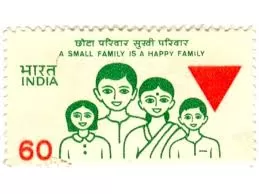
The Government accords top priority to the National Family Planning Program, which is guided by the tenets of the National Population Policy 2000 and National Health Policy 2017, to address the unmet need for Family Planning.
Measures taken by the Government:
- Expanded Contraceptive Choices: The current contraceptive basket comprising condoms, combined oral contraceptive pills, emergency contraceptive pills, intrauterine contraceptive device (IUCD) and sterilization is expanded with inclusion of new contraceptives namely Injectable contraceptive MPA (Antara Programme) and Centchroman (Chhaya).
- Mission Parivar Vikas is being implemented in thirteen states for substantially increasing access to contraceptives and family planning services.
- Compensation scheme for sterilization acceptors, which provides compensation for loss of wages to the beneficiaries for sterilization.
- Post-pregnancy contraception in the form of Post-partum Intra-uterine contraceptive device (PPIUCD), Post-Abortion Intrauterine contraceptive device (PAIUCD), and Post-partum Sterilization (PPS) are provided to beneficiaries.
- ‘World Population Day & Fortnight’ and ‘Vasectomy Fortnight’ are observed every year to boost awareness on Family Planning and service delivery across all States/ UTs.
- Under the Home Delivery of Contraceptives Scheme, ASHAs deliver contraceptives at doorstep of beneficiaries.
- Family Planning Logistics Management Information System (FP-LMIS) is in place to ensure last mile availability of family planning commodities across all the levels of health facilities.
The Government has been successful in reining in the growth of the population, and the following progress has been achieved:
- The Total Fertility Rate declined from 2.2 in 2015-16 (NFHS 4) to 2.0 in 2019-21 (NFHS 5) which is below replacement level.
- 31 out of 36 States/ UTs have achieved replacement level fertility (NFHS 5).
- Modern Contraceptive usage has increased from 47.8% in 2015-16 (NFHS 4) to 56.5% in 2019-21 (NFHS 5)
- The Unmet Need for Family Planning has decreased from 12.9% in 2015-16 (NFHS 4) to 9.4% in 2019-21 (NFHS 5)
- The Crude Birth Rate (CBR) has declined from 20.8 in 2015 (SRS) to 19.5 in 2020 (SRS).
The Union Minister of State for Health and Family Welfare, Prof. S P Singh Baghel stated this in a written reply in the Lok Sabha yesterday.











